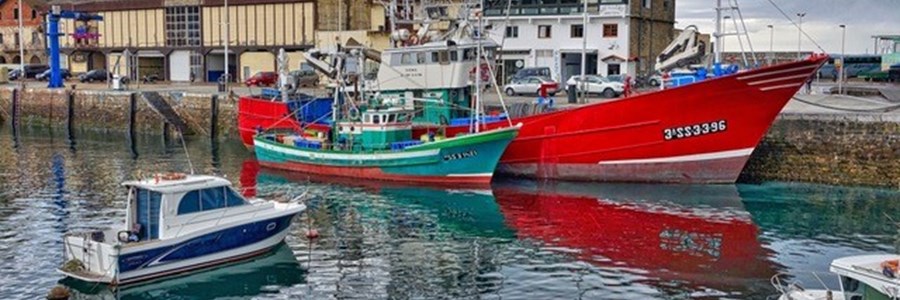EU Fishing Industry welcomes European Commission’s proposal as a first measure to mitigate the impact of the COVID-19 Crisis. Additional Funding must now be provided.

The European Commission today published a legislative package in response to the severe economic impact of the COVID-19 pandemic on the fishing industry. The proposed framework unlocks existing EU funding and market schemes to support affected fishers. The EU fishing industry welcomes the emergency measures proposed by the Commission to try to mitigate the adverse effects of those who are being directly threatened by the crisis and to calm the tension in our markets. The sector looks forward to a quick adoption by EU authorities allowing a speedy and flexible implementation of the provisions in the Member States. The Industry is disappointed that no extra-funding is included and is calling that this be addressed as a matter of urgency in light of the fact that otherwise the measures proposed will not be effective to cope with the unprecedented crisis.
In its proposal the European Commission has put forward the necessary legislative modifications to allow Member States more flexibility to reallocate and transfer unused financial means of their fisheries funds (EMFF) so it can be destined to mitigate the impact of the coronavirus where needed. The Commission also modifies EMFF-provisions to allow aid for those fleets forced to stay in the port due to quarantine measures, operational problems or market disruptions. Member States may apply this support with retroactive effect from 1st February 2020. The Commission also reintroduces storage aid mechanisms for fish unsold due to the lack of market demand or extremely low prices, with a view to fostering the stabilisation of the markets.
While welcoming these fundamental changes, the Industry however would have liked to see a higher level of ambition regarding the measures proposed. In this context, Mr Garat, President of Europêche, declared: “We are facing a paradox: EU and national governments are encouraging our operators to continue fishing but, for the moment, they are not tabling any measure to compensate the loss of income faced by our companies due to the huge reduction of up to 50% of fish prices threatening their financial viability. It should be seen as fundamental that our fishermen continue to supply healthy food under these very difficult circumstances. Therefore, it is essential for them to receive a certain level of income compensation through the EMFF or other funds to make this possible.”
Pim Visser, President of EAPO commented: “The COVID-19 pandemic will have tremendous and unpredictable implications for the future of our industry. We appreciate the efforts and legislative changes made by the Commission to unlock and redistribute the existing funding possibilities. However, many countries have already spent or committed most of their available national funding under the EMFF. In addition, the market situation, once the public health crisis is under control, is expected to be very difficult. Therefore, extra-funding should be injected in the fisheries fund by the EU, in order for these measures to effectively cope with the crisis. We are just in the midst of a horrific storm and we do not know how long it will last.”
Javier Garat, concluded: “The fishing industry is a vital, sustainable and responsible sector, committed to continue fishing and maintaining food security. However, the fishing sector has been hit particularly hard by the COVID-19 crisis. If we want to have a healthy fishing industry after the crisis we need additional funding and full flexibility in the interpretation and application of any new rules.”
ENDS
Press contacts:
Daniel Voces de Onaíndi, Managing Director of Europêche: +32 2 230 48 48 daniel.voces@europeche.org
Emiel Brouckaert, Secretary General of EAPO: +32 59 43 20 05 info@eapo.com
Sources: Europeche
Attachments:
Tags: COVID-19, EMFF, european commission, Member States, coronavirus, financial aid, market disruption, storage aid, flexibility, fish prices, fishermen, compensation, EAPO, public health crisis, food security